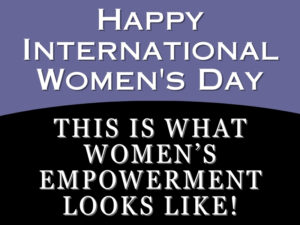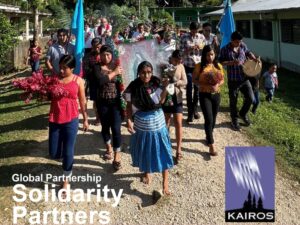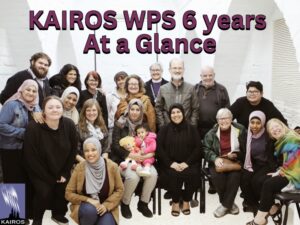Resilience and collective responsibility in peace building in Palestine
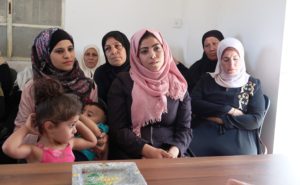
In July, my colleague Rachel Warden and I travelled to the West Bank to visit with Wi’am: Palestinian Conflict Transformation Center, one of five KAIROS partner organizations in the Women of Courage: Women, Peace and Security (WPS) program.
I was familiar with the context of the conflict in Israel/Palestine, but during my time there, I witnessed the current face of the conflict, listening to the Palestinian communities who are living through socio-economic and political deterioration, severe and discriminatory restrictions on human rights and a burgeoning humanitarian crisis.
At the Wi’am Center in Bethlehem, our hosts, Lucy Talgieh – Women’s Program Coordinator and Tarek Al-Zougbi – Programs Coordinator, informed us that the Center is having to constantly respond to the challenges of the current volatile context. Wi’am is working to meet the need for responding to and dealing with trauma, social and economic empowerment, particularly of women and youth who are living in an abating social-economic and political reality. The context of the relentless occupation is even reflected in the language. Wi’am refers to programming in “trauma coping”, not healing.
The occupation has daily and multilevel impacts on women and youth. The effects of humiliation and emasculation have deepened gender conflicts within Palestinian domestic sphere and society in general. It has also led to regressive setbacks within the communities, diminishing women’s role as leaders and decision makers in society, reducing their independence, economic abilities and opportunities.
The highlight of our visit was meeting with women’s groups that are supported by Wi’am in the communities of Sureef and Al Jaba. We witnessed the incredible work of these women on socio-economic initiatives, their resilience in the face of the ongoing conflict, and the progress they are making in re-establishing women’s dignity in their communities. The women in these communities face harsh economic, social and cultural impacts of the occupation as well as the rise in conservative, patriarchal extremist groups within Palestinian society that have exacerbated domestic and gender based violence.
Over coffee and delicious pastries and food, the women talked to us about the income generating activities that they have initiated. Both groups run kitchen projects and make hand-made products and crafts as well. Many of the women told us that they are the sole breadwinners in their families and that the groups’ initiatives are their sustenance.
Though these women live in different communities in the West Bank, they face similar challenges including lack of adequate capital, market, financial literacy and restricted movement. In some of their communities, expanding settlements and militarization confine their movement to within their small towns. They are restricted from using designated settler-only roads and the growing number of checkpoints is a daily impediment.
Wi’am holds trainings on national and international human rights, provides psycho-social support, counselling and referrals, as well as immediate care and support in cases of domestic, sexual, or military violence to help the women overcome psychological trauma. In addition to financial literacy training, Wi’am and other civil society organizations collaborate with institutions such as the Palestinian Independent Commission for Human Rights and the Chamber of Commerce & Industry to boost initiatives that enable the women to realize both socio-economic and political independence. With Wi’am’s support, more women in this community are assuming vital leadership roles and increasing their participation in effective decision making.
In Sureef, Wi’am’s human rights trainings are encouraging the women to participate more in decision making in their homes, in their communities and at local municipalities. The women also spoke of the support they have found in one another, as well as a recent and timely acquisition of an oven through Wi’am’s support, that has boosted their income generating initiatives.
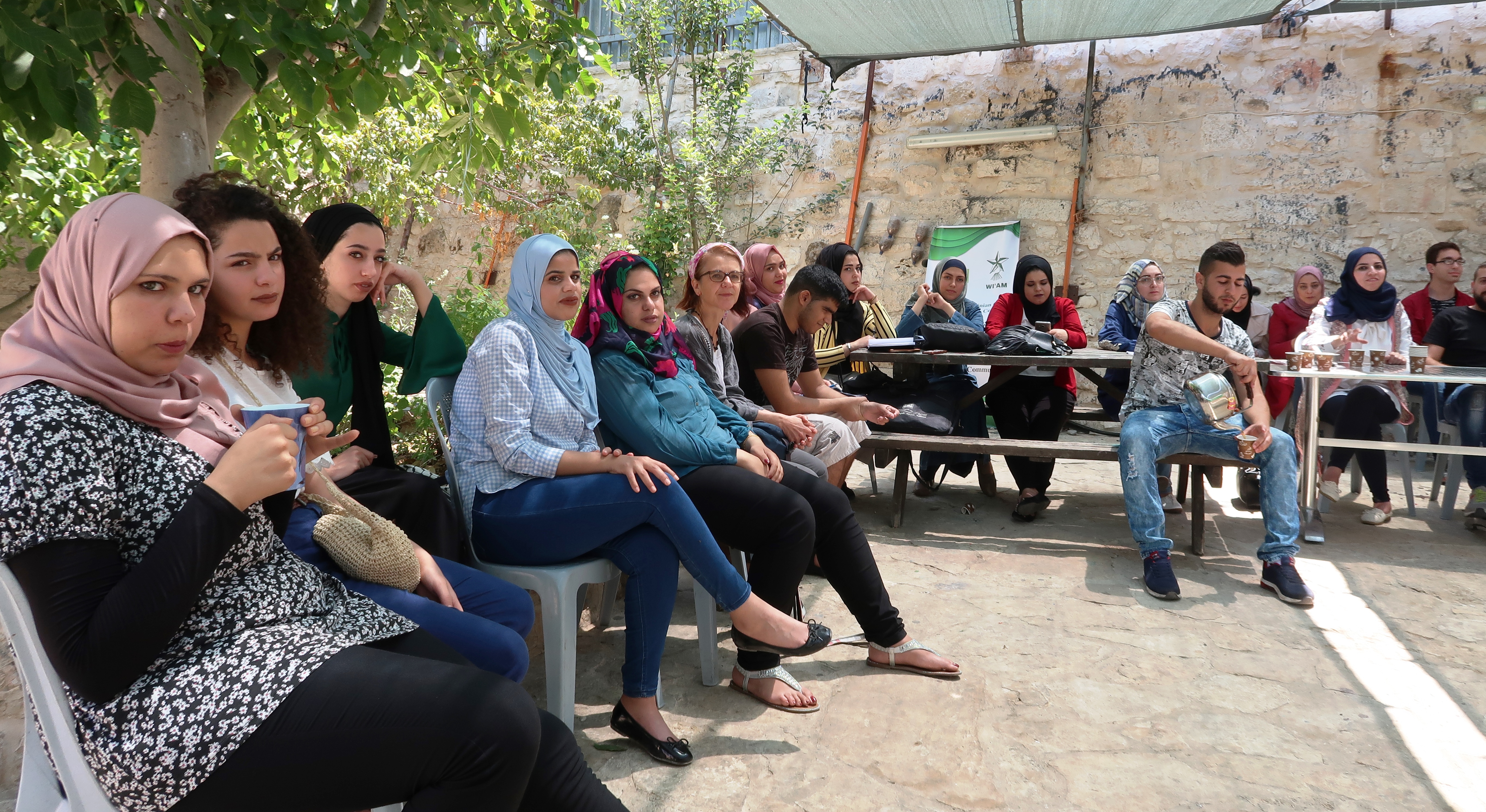 On our last day, Rachel and I also had the opportunity to participate in one of Wi’am ’s youth workshops, part of the youth program that works with both young men and women at the Center. They voiced their frustrations at having to grapple with the challenges of increasing unemployment, intergenerational trauma. Harassment, blackmail and bullying on social media are other emerging challenges that are having devastating consequences such as suicides and severe punishments to preserve family honour.
On our last day, Rachel and I also had the opportunity to participate in one of Wi’am ’s youth workshops, part of the youth program that works with both young men and women at the Center. They voiced their frustrations at having to grapple with the challenges of increasing unemployment, intergenerational trauma. Harassment, blackmail and bullying on social media are other emerging challenges that are having devastating consequences such as suicides and severe punishments to preserve family honour.
The deliberate inclusion of young men in the youth program creates male allies for equal rights and gender justice. The group, comprising of youth from Hebron and Bethlehem, participated in discussions on how the youth can be active agents of nonviolent peacebuilding in their communities. It was evident that the participants were committed to innovative nonviolent conflict transformation rooted in growing awareness of gender justice, inclusion and equality.
We also witnessed the work being done by human rights defenders and organizations in Jerusalem and Tel Aviv to end the occupation and promote a just solution to the Israeli-Palestinian conflict. Their mutual work is grounded on the tenets of full and equal enjoyment of human rights, dignity, peace and reconciliation.
I was so impressed and humbled by the resolute spirit, resilience and hope of our partners in the face of the growing and what appears to be intractable military might of the occupation. Wi’am gave us a card that reads, “No injustice will last forever”. This spirit and defiance allows them to not only continue to survive, but also to work with the most vulnerable members of Palestinian society – women, children and youth.
Written by Jane Thirikwa, Global Partnerships Coordinator


